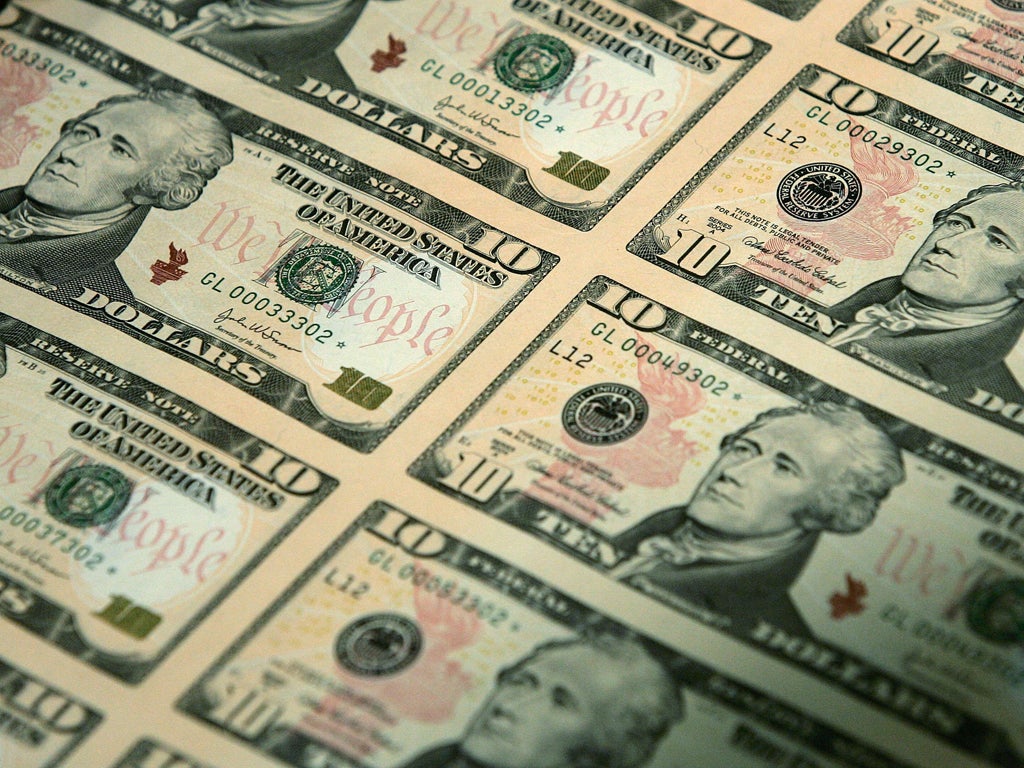Satyajit Das: So how long can the US hold the world to ransom with the dollar?
Midweek View: Keynes warned: ‘Owe your banker £1,000 and you are at his mercy; owe him £1m and the position is reversed’

On 8 November 2010, the German finance minister Wolfgang Schäuble told the Wall Street Journal: "The USA lived off credit for too long, inflated its financial sector massively and neglected its industrial base."
US gross government debt currently totals around $16trillion (£10trn). The US government holds around 40 per cent of the debt through the Federal Reserve and government funds. Individuals, corporations, banks, insurance companies, pension funds, mutual funds, state or local governments, hold 25 per cent. Foreign investors, China, Japan and "other" (principally oil exporting) nations, Asian central banks or sovereign wealth funds hold the rest.
Historically, America has been able to run large budget and balance of payments deficits because it had no problem finding investors in US Treasury securities. The unquestioned credit quality of the US, the unparalleled size and liquidity of its government bond market, ensured investor support. Given its reserve currency and safe haven status, US dollars and US government bonds were a cornerstone of investment portfolios of foreign lenders.
During this period, emerging countries such as China fuelled American growth, supplying cheap goods and cheap funding – recycling export proceeds into US bonds – to finance the purchase of these goods. It was a mutually convenient addiction .
Asked whether America hanged itself with an Asian rope, a Chinese official told a reporter: "No. It drowned itself in Asian liquidity."
Given the sheer quantum of US debt, foreign investors may become increasingly less willing to finance America. Japanese and European investors, struggling to finance their own government obligations, may simply not have the funds.
Given its magnitude and the lack of political will to deal with the problem of debt and public finances, the US is now deploying its FMDs – "financial extortion", "monetisation" and "devaluation" – to finance its requirements.
In a form of extortion, existing investors like China must continue to purchase US dollars and bonds to avoid a precipitous drop in the value of existing investments.
Debt monetisation – printing money – is another strategy. The US Federal Reserve is already the in-house pawnbroker to the US government, purchasing government bonds in return for supplying reserves to the banking system. Expedient in the short term, monetisation risks setting off inflation. The absence of demand in the economy, industrial over-capacity and the unwillingness of banks to lend have meant successive "quantitative easing" has not resulted in higher inflation to date. But the risks remain.
Monetisation is inexorably linked to devaluation of the US dollar. The zero interest rates policy and debt monetisation is designed to weaken the dollar. As John Connally, the US Treasury Secretary under President Richard Nixon, belligerently observed: "Our dollar, but your problem."
Despite bouts of dollar buying on its safe haven status, the US dollar has significantly weakened over the last two years, losing around 20 per cent against major currencies since 2009. As the dollar weakens US foreign investments and overseas income gain in value. But the major benefit is in relation to debt owned by foreigners. As almost all its government debt is denominated in US dollars, devaluation reduces its value.
This forces existing investors to keep rolling over debt to avoid realising losses. It encourages them to increase investment, to "double down" to lower their average cost of US dollars and debt. It also allows the US to enhance its competitive export position.
Major investors in US government bonds now find themselves in the position John Maynard Keynes identified: "Owe your banker £1,000 and you are at his mercy; owe him £1m and the position is reversed."
Valery Giscard d'Estaing, the French finance minister under Charles de Gaulle, famously used the term "exorbitant privilege" to describe the advantages to America of the dollar's role as a reserve currency and its central role in global trade.
That privilege now is not only "exorbitant" but "extortionate". How long the world will let the US exercise it is uncertain.
Satyajit Das is a former banker and author of "Extreme Money" and "Traders, Guns & Money"
Join our commenting forum
Join thought-provoking conversations, follow other Independent readers and see their replies
Comments